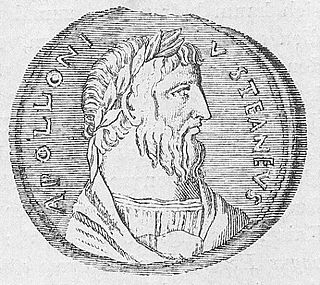A Quote by Marcus Aurelius
Think on this doctrine, - that reasoning beings were created for one another's sake; that to be patient is a branch of justice, and that men sin without intending it.
Related Quotes
Depth, in a pictorial, plastic sense, is not created by the arrangement of objects one after another toward a vanishing point, in the sense of the Renaissance perspective, but on the contrary (and in absolute denial of this doctrine) by the creation of forces in the sense of push and pull . Nor is depth created by tonal gradation (another doctrine of the academician which, at its culmination, degraded the use of color to a mere function of expressing dark and light).
Aside from higher considerations, charity often operates as a vastly wise and prudent principle-a great safeguard to its possessor. Men have committed murder for jealousy's sake, and anger's sake, and hatred's sake, and selfishness' sake, and spiritual pride's sake; but no man that ever I heard of, ever committed a diabolical murder for sweet charity's sake. Mere self-interest, then, if no better motive can be enlisted, should, especially with high-tempered men, prompt all beings to charity and philanthropy.
For a Man cannot believe a Miracle without relying upon Sense, nor Transubstantiation without renouncing it. So that never were any two things so ill coupled together as the Doctrine of Christianity and that of Transubstantiation, because they draw several ways, and are ready to strangle one another: For the main Evidence of the Christian Doctrine, which is Miracles, is resolved into the certainty of Sense, but this Evidence is clear and point blank against Transubstantiation.
I would call the attention of the reader to the difference between "reason" and "reasoning." Reason is a light, reasoning a process. Reason is a faculty, reasoning an exercise of that faculty. Reasoning proceeds from one truth to another by means of argumentation. This generally involves the whole mind in labor and complexity. But reason does not exist merely in order to engage in reasoning. The process is a means to an end. The true fulfillment of reason as a faculty is found when it can embrace the truth simply and without labor in the light of single intuition.
If God does not exist, and if religion is an illusion that the majority of men cannot live without ... let men believe in the lies of religion since they cannot do without them, and let then a handful of sages, who know the truth and can live with it, keep it among themselves. Men are then divided into the wise and the foolish, the philosophers and the common men, and atheism becomes a guarded, esoteric doctrine - for if the illusions of religion were to be discredited, there is no telling with what madness men would be seized, with what uncontrollable anguish.








































